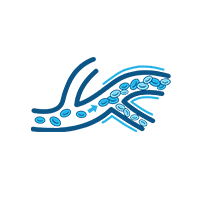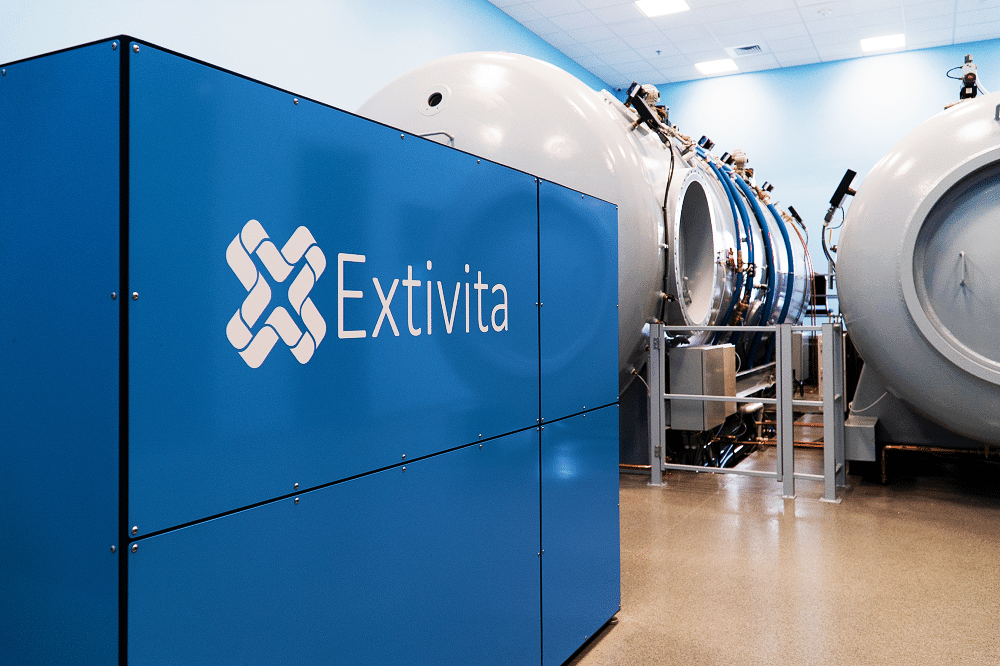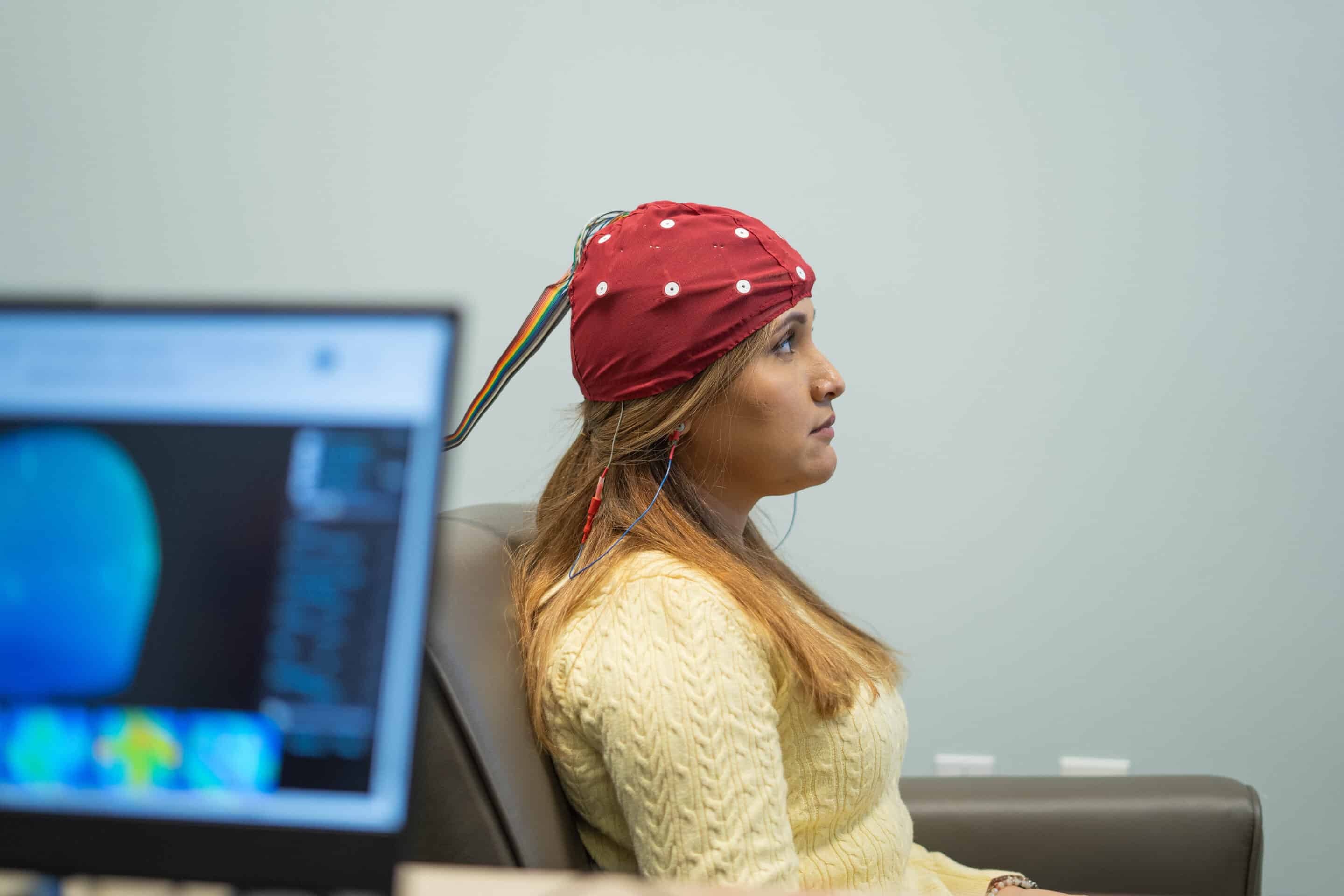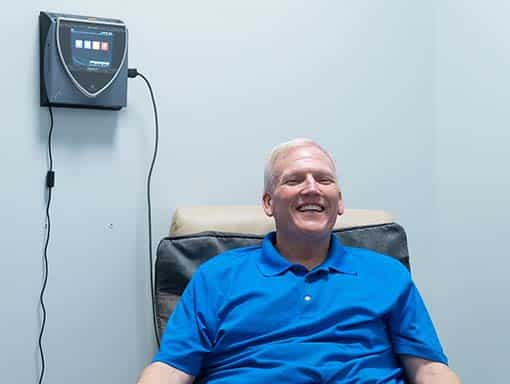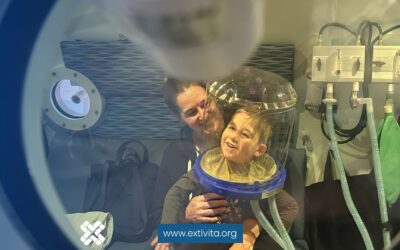Cerebral Palsy (CP)
Cerebral palsy (CP) is a group of neurological disorders that affect movement, muscle tone, and posture. It occurs due to abnormal brain development or damage to the developing brain, often before birth, during delivery, or shortly after birth. Common causes include oxygen deprivation (hypoxia), infections during pregnancy, premature birth, and complications during labor. The severity and symptoms of CP vary widely, from mild motor skill difficulties to severe disabilities. CP is a lifelong condition, but therapies, surgeries, and assistive devices can improve quality of life.
Extivita Therapies for Cerebral Palsy:

Hyperbaric Oxygen Therapy

Nutritional IV Therapy
Colin’s HBOT Story
Schedule a Consultation
Hyperbaric Oxygen Therapy for Cerebral Palsy:
Hyperbaric Oxygen Therapy (HBOT) has shown promise for helping patients with cerebral palsy (CP) by targeting key issues in the brain. HBOT increases oxygen supply to damaged brain areas, which can improve motor skills and cognitive function1. It also reduces inflammation and oxidative stress, protecting brain cells from further harm2 .HBOT promotes the brain’s ability to repair itself by stimulating the growth of new brain cells and blood vessels3. Additionally, it helps cells produce more energy, which supports healing and can lead to better movement control and reduced muscle stiffness 4, 5. In fact, children who received HBOT therapy exhibited a substantial improvement in gait metrics and functional balance both after 8 weeks and 6 months, demonstrating long-term improvements6. Overall, HBOT can potentially improve the quality of life for CP patients by enhancing brain recovery.
Neurofeedback for Cerebral Palsy:
Neurofeedback can assist patients with cerebral palsy (CP) by helping them regulate their brain activity, which may lead to improvements in motor control, reduced muscle spasticity, and enhanced cognitive functions7. By monitoring brainwaves and providing real-time feedback, neurofeedback trains individuals to modify their brain’s electrical patterns8. This can result in better muscle coordination, improved focus, and greater emotional regulation, all crucial for managing the motor and cognitive challenges associated with CP. Research has shown that neurofeedback training can significantly improve attention and motor function in children with CP and co-occurring attention deficits9.
IV Therapy for Cerebral Palsy:
Nutritional IV therapies, such as Myers’ Cocktail, glutathione, and NAD+ infusions, may offer benefits for patients with cerebral palsy (CP) by addressing inflammation, oxidative stress, and cellular energy deficits that often accompany the condition. While there is limited direct research on IV therapies for CP, their potential mechanisms can help improve overall health and possibly alleviate some symptoms associated with CP.
Myers’ Cocktail:
Myers’ Cocktail is an intravenous infusion containing vitamins and minerals like B vitamins, vitamin C, magnesium, and calcium. In cerebral palsy (CP) patients, this combination may help improve energy levels, as B vitamins support energy production. Magnesium can reduce muscle spasms and stiffness, which are common in CP, while vitamin C and magnesium also have anti-inflammatory effects, which may help reduce inflammation in the brain and muscles, potentially improving motor function and overall well-being10, 11.
Glutathione:
Glutathione is a powerful antioxidant administered through an IV that helps protect cells from oxidative stress and supports detoxification. For CP patients, glutathione can reduce oxidative damage, which is often elevated in the brain due to CP-related injury. By neutralizing harmful free radicals, it may protect brain cells and support cognitive and motor function12, 13.
NAD+ (Nicotinamide Adenine Dinucleotide):
NAD+ is a coenzyme essential for energy production and cellular repair. IV NAD+ therapy may help CP patients by improving mitochondrial function, which boosts energy levels in the brain and muscles. This can enhance motor control and reduce fatigue. NAD+ also promotes the repair of damaged neurons, potentially improving cognitive and motor outcomes 14, 15.
Pulsed Electromagnetic Field Therapy for Cerebral Palsy:
Pulsed Electromagnetic Field (PEMF) therapy shows promise in treating cerebral palsy (CP) by enhancing neuromuscular repair, reducing pain and spasticity, improving circulation, and supporting neuroplasticity. Studies suggest PEMF may help improve motor function, alleviate chronic pain, and reduce muscle tone abnormalities common in CP, making it a valuable complement to traditional therapies. PEMF has also been shown to promote bone density and joint health, which is particularly beneficial for individuals with limited mobility16, 17.
Infrared Sauna for Cerebral Palsy:
Far Infrared (FIR) sauna therapy has been explored for its potential benefits in managing cerebral palsy (CP) symptoms by targeting muscle spasms, circulation, and inflammation. FIR saunas emit infrared light that penetrates deep into the tissues, helping to relax stiff muscles, reduce pain, and improve blood flow, which are common issues in CP. Additionally, FIR therapy has been shown to stimulate the production of heat shock proteins that aid in cellular repair and neuroprotection, potentially offering benefits for brain function. The therapy also supports detoxification by promoting sweat, which helps remove toxins and reduce oxidative stress, further supporting overall health. While direct studies on FIR sauna use for CP are limited, its proven effects on inflammation, muscle relaxation, and circulation suggest it could be a valuable supportive therapy for managing CP symptoms 18, 19.
Research
Managing Cerebral Palsy with HBOT and Neurofeedback
Cerebral Palsy (CP) is a neurological condition that affects movement, muscle tone, and posture, often resulting from brain damage before, during, or shortly after birth. Although there is no cure, advancements in therapeutic approaches like...
Hyperbaric oxygen therapy is safe and effective for the treatment of sleep disorders in children with cerebral palsy.
Abstract: To observe the effects of hyperbaric oxygen (HBO2) therapy on the treatment of sleep disorders and its safety in children with cerebral palsy (CP). A total of 71 recruited children were divided into two groups based on age: group 1, aged...
Mild Hyperbaric Oxygen Inhibits Growth-related Decrease in Muscle Oxidative Capacity of Rats with Metabolic Syndrome.
Abstract: We examined the effects of mild hyperbaric oxygen on the properties of the soleus muscle in rats with metabolic syndrome. Five-week-old metabolic syndrome (SHR/NDmcr-cp, cp/cp) rats were divided into normobaric (CP) and mild hyperbaric...
References
- Machado, L. A., et al. “Hyperbaric oxygen therapy and cerebral palsy: systematic review of the literature.” Developmental Medicine & Child Neurology, vol. 44, no. 7, 2002, pp. 453-460.
- James, P. B., and H. C. R. Finkelstein. “Hyperbaric oxygen therapy in cerebral palsy: recent evidence.” Undersea & Hyperbaric Medicine, vol. 41, no. 6, 2014, pp. 533-547.
- Harch, P. G., et al. “Hyperbaric Oxygen Therapy for Brain Injury, Cerebral Palsy, and Stroke: A Review of Benefits and Risks.” Neural Regeneration Research, vol. 10, 2015, pp. 891-897.
- Zhao, B., et al. “Hyperbaric oxygen promotes functional recovery and enhances mitochondrial function in rats with cerebral ischemia-reperfusion injury.” Brain Research, vol. 1542, 2013, pp. 1-8.
- Montgomery, D., et al. “Randomized controlled trial of hyperbaric oxygen therapy in children with cerebral palsy.” Lancet, vol. 357, no. 9256, 2001, pp. 582-586.
- Khalil, M. E., M. A. Abdel Ghafar, O. R. Abdelraouf, et al. “Long-Term Effect of Hyperbaric Oxygen Therapy on Gait and Functional Balance Skills in Cerebral Palsy Children: A Randomized Clinical Trial.” Children, vol. 10, no. 2, 2023, p. 394.
- Behboodi, Ahad et al. “Determining optimal mobile neurofeedback methods for motor neurorehabilitation in children and adults with non-progressive neurological disorders: a scoping review.” Journal of neuroengineering and rehabilitation vol. 19,1 104. 28 Sep. 2022, doi:10.1186/s12984-022-01081-9
- Sharma, Priya, Meena Gupta, and Ruchika Kalra. “Recent Advancements in Interventions for Cerebral Palsy – A Review.” Journal of Neurorestoratology, vol. 11, no. 3, 2023, p. 100071,
- Chen, Y. C., Chang, W. P., Liang, K. J., Chen, C. L., Chen, H. Y., Chen, S. P., & Chan, P. S. (2024). The effects of neurofeedback training for children with cerebral palsy and co-occurring attention deficits: A pilot study. Child: Care, Health and Development, 50(2), e13231. https://doi.org/10.1111/cch.13231
- Gaby, Alan R. “Nutritional Medicine.” Journal of Alternative and Complementary Medicine, vol. 8, no. 1, 2002, pp. 5-13. DOI: 10.1089/107555302753507168.
- Hemilä, Harri, and Elizabeth Chalker. “Vitamin C Can Shorten the Length of Stay in the ICU: A Meta-Analysis.” Nutrients, vol. 11, no. 4, 2019, p. 708. DOI: 10.3390/nu11040708.
- Allen, John, et al. “Glutathione as a Key Antioxidant in Human Diseases.” Biochimica et Biophysica Acta (BBA) – General Subjects, vol. 1830, no. 5, 2013, pp. 3297-3318. DOI: 10.1016/j.bbagen.2012.11.019.
- Pizzorno, Joseph. “Glutathione! The Great Protector.” Integrative Medicine: A Clinician’s Journal, vol. 13, no. 1, 2014, pp. 8-12.
- Knip, Michael, et al. “NAD+ and Sirtuins in Neurodegeneration: From Mechanisms to Therapeutics.” Nature Reviews Neurology, vol. 14, 2018, pp. 224-240. DOI: 10.1038/nrneurol.2018.16.
- Pittelli, Matteo, et al. “NAD+ Boosters as Therapeutic Agents in Aging and Neurodegeneration.” Trends in Molecular Medicine, vol. 22, no. 1, 2016, pp. 42-53. DOI: 10.1016/j.molmed.2015.11.002.
- Bagnato, Gianluca, et al. “Effects of PEMF on Motor and Cognitive Recovery in Pediatric Patients with CP.” Journal of Pediatric Neurology, 2019.
- Zeng, Hui, et al. “PEMF in Neurological Conditions.” European Journal of Neurology, vol. 26, no. 5, 2019.
- Sauna Advisors. “17 Evidence-Based Benefits of Far Infrared Sauna.” Accessed 2023.
Sauna Advisors – 17 Evidence-Based Benefits of Far Infrared Sauna - Mobility Athlete. “7 Science-Backed Ways Saunas Boost Brain Health.” 2021.
Mobility Athlete – 7 Science-Backed Ways Saunas Boost Brain Health

